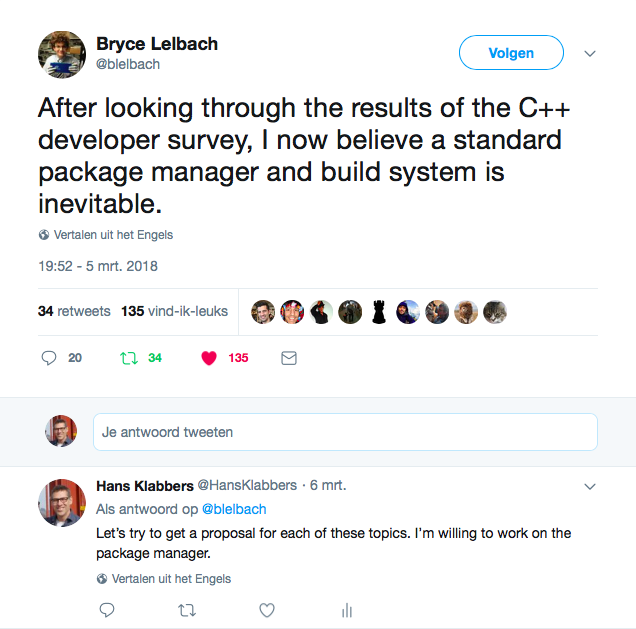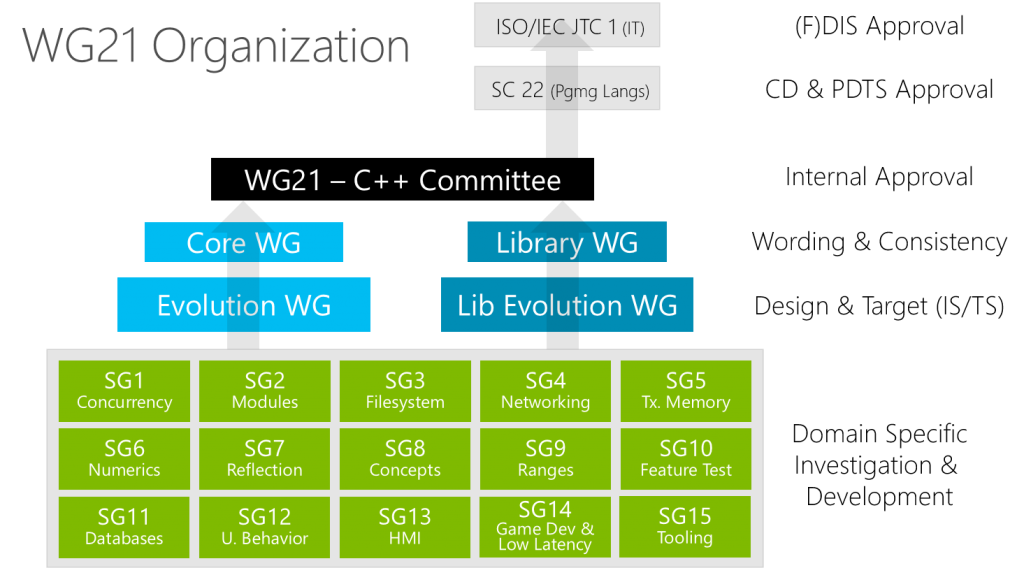Exciting times
After finishing my previous blog I started working on a new article on the subject of performance measurement with micro-benchmarking or perf. Title to be determined 😉
But then I took part in the Standard C++ Foundation Developer survey. And what happend after the survey made me postponing the article and writing the article you are reading now.
You can find a summary of the results on the ISOCPP website. When the summary was published I came across a tweet by Corentin about a post on medium.com about dependency management and a tweet by Bryce Lelbach. So I responded.

So that’s out. Wait, I just created a liability for myself on a difficult subject where everyone has an opinion about. The missing easy dependency manager is bugging me for years already and that is what made me respond to it. Years of frustration got out in this one tweet. But I’m serious, as a community we should solve this. The article of Corentin gives a lot of good starting points. I agree with most of the article.
This part of the standardization process should be studied by SG15 Tooling, chaired by Titus Winters.

Approach
Before continuing reading it is advised to read the article by Corentin. I’m not going to repeat him here ;-). It is important that we all understand the difference between a package manager and dependency management. Corentin gives some description of dependency management and to me it is clear that what we need is dependency management and tooling around that. So let’s agree that we talk about dependency management from now on only!
We should not try to build a ‘one and only’ dependency manager for C++. Let’s leave the building to tool builders, just as we do with compilers. The ISO C++ Committee doesn’t build compilers, they build specifications and leave the implementation to compiler builders. In this area the same can be done, except for one part – I will get back to that later. We also shouldn’t try to build a ‘one and only’ build system. We should strive to have the build system builders to implement the dependency specification in their tooling and that is it. Existing build tooling can add the dependency management into their tooling and use the standardized dependency specification. This specification can contain a lot of aspects:
- Libraries these sources depends upon
- Compiler flags needed to successfully compile these sources
- Linker flags needed to successfully link these ‘sources’
- Architectures on which these sources can run without problems
- Preferred compilers for these sources
- Versioning and source information
- Namespace information
- Etc.
This all is still specification (we as a community should align with tool builders to arrive at a specification that they can implement). The only aspect I think is important to create and support centrally is a repository in which sources are stored. The central repository will be used by to tools to download the sources. It goes without saying the these sources must comply to the specification. I agree with Corentin that the repository must be high available and easily duplicated. I also agree that organizations can have their own in-house repository. But I disagree that this should be a commercial industry initiative. The security and reliability is super important for the success of the initiative and therefore it must be under control of the central standardization body. This repository must be the ‘single’ source of truth.
Let’s do it
I really think that dependency management is important for the future of C++ and I’m willing to contribute to that. So Titus, when do we start.